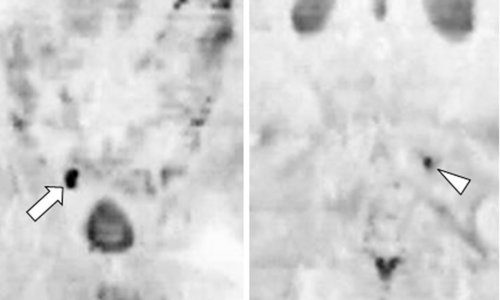Cancer care advances — but at what cost?
Half a million dollars for one extra month of life
Although incremental improvements in cancer care were unveiled at the 44th Annual Meeting of the American Society of Clinical Oncology held in Chicago, USA, — the world's largest gathering of cancer specialists, our correspondent Ian Mason writes that, even as new study results were being reported, their cost implications for stretched healthcare budgets were questioned.
Professor Robert Pirker, Medical University of Vienna, Austria, announced results from the FLEX study (Abstract #3) showing that combining the targeted therapy cetuximab with platinum-based chemotherapy improved overall survival compared to chemotherapy alone, when used as a first-line treatment for patients with advanced non-small cell lung cancer – which accounts for more than 80% of all lung cancers.
The addition of cetuximab boosted overall survival from 10.1 months to 11.3 months, a result that Professor Pirker described as ‘setting a new standard’ for the first-line treatment of this dreadful malignancy.
However, Professor Thomas J Lynch, Harvard School of Medicine, pointed out that this modest survival benefit – just 1.2 months – came at a cost per life year gained of $540,000 to $622,080.
The eye-watering cost of such interventions underscored the importance of pharmacogenomics – another major theme at this year’s ASCO. ‘This exciting field gives
us new tools to identify the most appropriate treatment for each patient,’ said Dr Julie Gralow, associate professor of medicine at the University of Washington.
In one such study, Professor Eric Van Cutsem, University Hospital, Leuven, Belgium reported results from the CRYSTAL trial (Abstract #2) showing that patients whose tumours contain the normal form (wild-type) of the gene KRAS are most likely to benefit from the addition of cetuximab to chemotherapy as part of first-line treatment of metastatic colorectal cancer, compared to patients who have a mutation in the KRAS gene. He suggested that KRAS testing now be routinely conducted in all colorectal cancer patients immediately after diagnosis. This was supported by other speakers who said that patients with KRAS mutations should not be given cetuximab or panitumumab.
In testicular cancer, results were reported (Abstract#1) showing that a single dose of carboplatin chemotherapy is as effective and less toxic than radiation therapy (the current standard of care) in preventing recurrence after surgery for early-stage testicular cancer – the most common solid tumor diagnosed in young men. ‘Personal preference is becoming a more important factor in determining the best treatment for patients with testicular cancer,’ said Dr Tim Oliver, St. Bartholomew’s Hospital, London. ‘This study establishes surgery followed by carboplatin chemotherapy as a safe new alternative for patients who have early-stage seminoma and would prefer a treatment that lasts a shorter period of time.’
There were also promising results for gynaecological malignancies, including results showing that vaginal brachytherapy is as effective as external beam radiation therapy at preventing the recurrence of endometrial cancer (Abstract # LBA5503). In this novel approach, a radioactive cylinder inserted into the vagina proved as effective at preventing the recurrence of higher-risk endometrial cancer as external beam radiation therapy, with fewer side effects and a better quality of life for patients. ‘Based on this study, we expect that vaginal brachytherapy will be adopted as the new standard of care for patients with this type of endometrial cancer,’ said Dr Remi Nout, Leiden University Medical Centre.
In breast cancer, a study found that giving zoledronic acid (Zometa) – a drug used to treat bone metastases and recently approved to treat osteoporosis – to premenopausal women undergoing ovarian suppression and hormone therapy, significantly reduces the risk of recurrence in early-stage breast cancer. ‘It’s very exciting to find that in addition to preventing bone loss in women undergoing adjuvant endocrine therapy for breast cancer, zoledronic acid can also reduce the likelihood that breast cancer will return in some women,’ said Professor Michael Gnant, Medical University of Vienna, and President of the Austrian Breast and Colorectal Cancer study group (Abstract # LBA4). Another study reported that adding bevacizumab (Avastin) to docetaxel (Taxotere) slows disease progression for patients newly diagnosed with locally advanced or metastatic breast cancer (Abstract # LBA1011).
A further study (Abstract #9509) with potential cost implications for budget holders was the finding that many survivors of childhood cancers are five to ten times more likely than their healthy siblings to develop heart disease in early adulthood. The massive Childhood Cancer Survivor Study (CCSS) showed that various types of heart disease were two to five times greater in survivors who had anthracycline drugs (such as doxorubicin) or radiation therapy to the heart as part of their cancer treatment, compared with survivors who did not undergo these treatments.
* Full ASCO abstracts: www.asco.org/
01.07.2008





